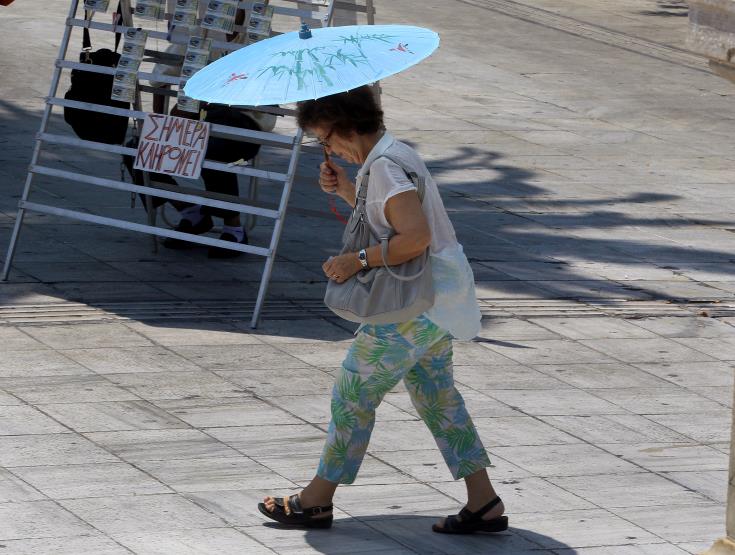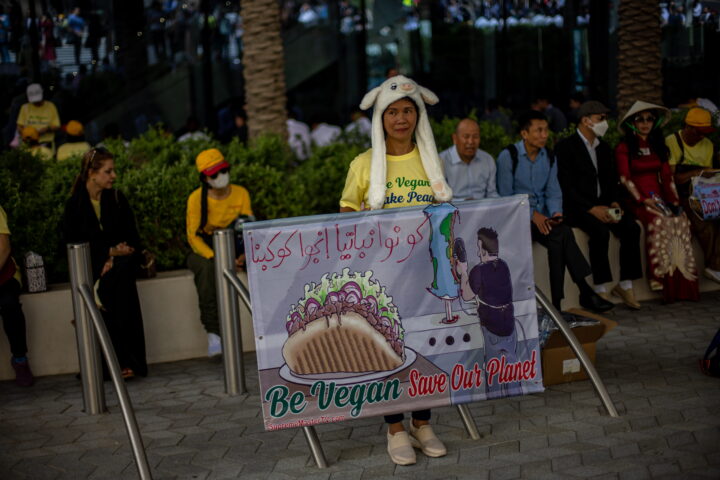A prolonged heatwave gripping the island for a record 17 days has reignited discussions over Cyprus’ future as climate experts warn that temperatures could reach 50 degrees Celsius in the years to come.
In comments to the Financial Mirror, Professor Emeritus at the Cyprus Institute, Manfred Lange, said he expected to see a warning that temperatures on the island would rise by 5°C or more this century, much earlier.
“Hitting 50°C in the next few years is unfortunately not out of the question, as climate change is picking up pace, affecting especially the Eastern Mediterranean,” said Professor Lange.
Cyprus expects the punishing heatwave to end on Saturday, as July is the hottest month on record.
It is not just the hottest July ever recorded but the hottest month since the weather station in Athalassa Nicosia was established in 1983.
Cyprus has been sweltering under temperatures over 40 degrees Celsius since 12 July, when the island was hit by a heatwave dubbed Cleon, raising temperatures to a maximum 44°C on 15 July.
“An acceleration of climate change has forced us to reconsider previous estimates on the possibility of Cyprus turning into a desert,” said Lange.
“Desertification is a process that takes place when ecosystems endure long periods of extreme heat, combined with water scarcity.
“Our models indicate an increase in temperatures, the frequency and length of heatwave hitting the region”.
He warned that worsening weather conditions would put pressure on the island’s ecosystem, ultimately meaning the end of some species unable to adapt to changing conditions.
The impact on human lives will also be grave, as the elderly and vulnerable will suffer from rising temperatures.
“We also expect to see a decrease in precipitation, with the number of dry days continuously growing.
“All of these contribute to the process of desertification, now truly a possibility for the island”.
On what can be done, the professor said it may already be too late.
“Two years ago, I would say it is not too late.
“However, all signs point towards an increasing likelihood of entering an intense phase, which could be irreversible,” said Lange.
“What we will have to concentrate on is adaptation.
“This by no means should mean that we give up on trying to make meaningful changes to our lifestyle, like bringing down CO2 emissions”.
Fossil fuels
Lange argued the island’s dependency on fossil fuels must be avoided.
“To make life bearable in the hot summer, Cypriots increasingly turn to air conditioning units, which run on electricity, mainly produced by fossil fuels.
“Making matters worse, there will be an increased need for water from desalination plants.
“This, once again, would mean more energy, which again will be produced by fossil fuels.
“It will be a vicious cycle.”
Green Party MP Charalambos Theopemptou cited reports from the Department of the Environment, according to which the percentage of areas in Cyprus susceptible to desertification may increase from 57% in 2008 to over 70% in 2050.
“This is down to changes in land use, soil erosion, the abandonment of land, especially in mountainous areas and the increase in the frequency of forest fires, factors which determine the susceptibility of soils to desertification,” said Theopemptou.
Regarding the effects of high temperatures on the environment, he said trees without deep roots and water for 4-5 months are threatened, as we now have prolonged summers.
He slammed previous governments for not doing anything for decades, despite “the writing on the wall”.
Theopemptou said: “Energy bankruptcy prevails in Cyprus as the country has not complied with the European directive that provides for the energy upgrade of 3% of public buildings every year”.
“From 2021 onwards, all new buildings should have almost zero energy consumption”.










